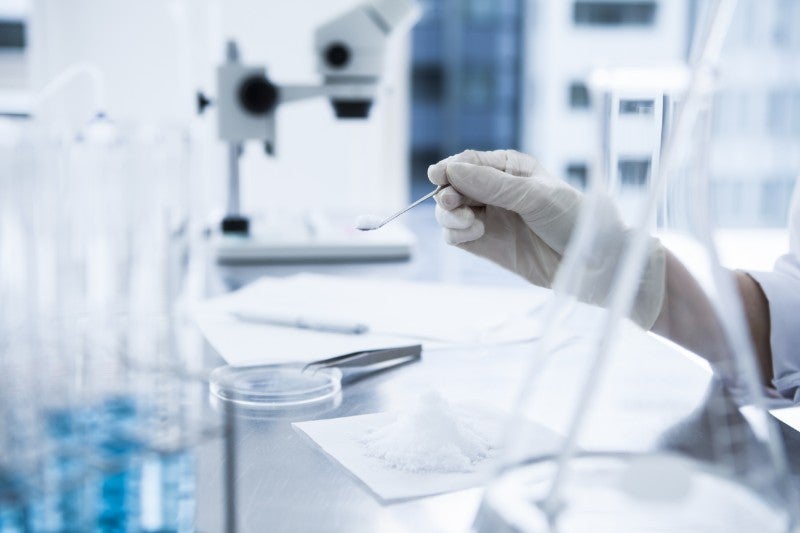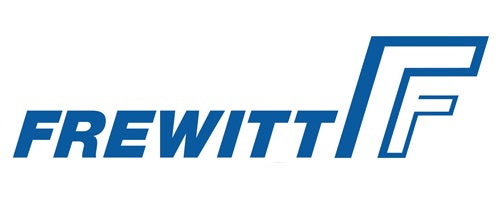
Nestled at the foot of the picturesque Alps in central Switzerland for more than 75 years, Frewitt S.A. provides powder size reducing equipment to the pharmaceutical, food, energy, and fine chemical industries. For Antoine Virdis, his years of experience as CTO of Frewitt before accepting the additional role of CEO in 2011, has forged his conviction that true value can only be added when industrial solutions deliver a veritable all-in-one solution, with no compromises. Antoine Virdis provided us with an exclusive interview at the Frewitt global headquarters in Granges-Paccot, near Fribourg, Switzerland.
“For longer than 20 years, I have been designing and delivering powder size reduction equipment to very demanding customers. Customers have always started projects based on the assumption that depending on the products, the risks, or the process requirements, some type of compromise would have to be made.
“I’ve never been content with that status quo. Many of our customers provide lifesaving medications to patients around the world. You won’t see any medicine with the name Frewitt on the package, but we are directly behind the providers of medicines, and we have a vital role to play. We have renewed our commitment to the industry and to our customers in a very simple, but all-encompassing manner: Frewitt Total Care.”
Frewitt just launched its latest, development, Power Mill PM-320 (patent-protected). This new generation of pin mill been stirring a lot of interest. Can you share your insight into how the development of the PM-320 was influenced by Frewitt Total Care?
AV: “PM-320 was conceived and designed to ensure that the customer did not have to make any compromises on user safety, product safety, usage ergonomics, efficient operation, productivity, and of course, return on investment.”
Walk us through the concept.
AV: “PM-320 offers to customers a high impact milling process that runs continuously under a vacuum environment, absent of air, and in a constant negative pressure. This unique, patented process allows us to deliver a process technology that checks off all the boxes of our customers’ wish-list.”
You mentioned safety first.
AV: “Safety is always our greatest priority. Working under a vacuum environment, processing with the PM-320 takes place in a negative pressure. The removal of air deprives the environment of O2; hence combustion cannot take place. In addition, the negative pressure of the process keeps the product contained and is compatible with the most exigent OEB levels. Other milling processes have an interior atmospheric pressure considerably higher than the surrounding, ambient environment, and over pressures must constantly be guarded against. The PM-320 is also ATEX 0/20 Interior certified.
When it comes to product safety, how does your latest design check this box?
AV: “Our process responds to the safety of the products milled in several ways. Firstly, the absence of air, and notably O2, removes the risk of oxidation. In addition, the absence of air means less friction, and almost zero heating. The process scarcely has any measurable temperature increase. Stable temperatures ensure that no molecular alteration of the product occurs during the process, as well as a stable shelf-life.”
What are your users’ first impression of the ergonomics? During a visit of your laboratory, we had difficulty believing the pin mill was in operation.
AV: “You are not the first to be surprised. The relative silence of the mill surprised even us in the beginning, but air is required to carry sound. The absence of it allows for users to work comfortably, and safely, rather than having to wear bulky ear protection that encumbers normal communication between workers.
“Users have also found the in-line execution with an integrated filter to be far easier for replacement of cleaning compared to competing technologies often requiring large, bulky, hard-to clean cyclone filters.”
How does your design concept impact efficiency?
AV: “Cleaning of our columnar execution enables far easier cleaning than competing technologies that require a great deal more product contact surface, with far more complex piping, rendering the overall cleaning process more complex, more time consuming, and costly. The greater product contact surface of competing technologies also creates greater product retention; virtually a non-issue with PM-320.”
What about efficiency of the size reduction?
AV: “Our ability to run the process in a negative atmosphere devoid of air permits us to run with far greater speeds of competing pin mills without using N2 blanketing. Consequentially we can compete head-to-head with jet mills, classifier mills in terms of PSD and throughput, without the expensive, space consuming, difficult to clean, product retaining designs. Our PM-320 is also scalable to other Frewitt pin mills in lab and pilot scales.”
Productivity and return on investment go together, do they not?
AV: “Precisely. Having less product retention, requiring less auxiliary filtering systems, reduced footprint, less frequent and easier filter changing, reduced cleaning time, no N2 consumption, all these factors together allow Frewitt to offer customers a lower cost of operation and more importantly, a faster return on investment.”
What’s next for Frewitt?
AV: “We will continue to build on our Frewitt Total Care commitment, and our future designs will be committed to well-rounded, strong value added solutions.”


